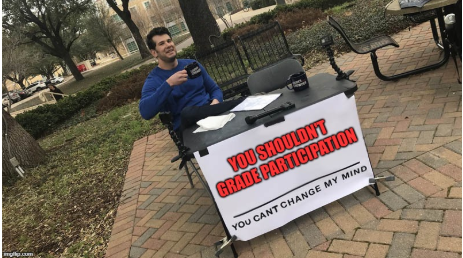Something I have started doing recently with my corporate trainees is asking them to give one positive comment and one negative comment to their groups members after each presentation. To make it more neutral, I ask them to use the following language.
"I like the way they ______________."
and
"I wish they had ___________."
Some examples could be "I like the way she presented energetically but I wish she had looked up from his notes more often."
By doing this, the trainees show that they were paying attention to the other trainees' talks and the presenter gets more feedback that just mine. Sometimes the other trainees notice things that I didn't or we just have different opinions about what was enjoyable or distracting. It also shows that they are learning what I have been teaching about good and bad presentation habits.
I have been happy using these prompts for peer feedback in presentation training and hope they will work for you too.



 RSS Feed
RSS Feed